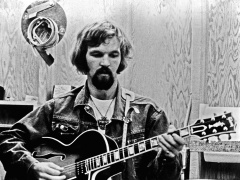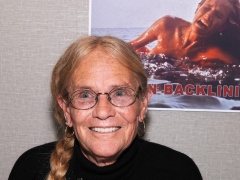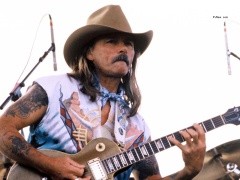
Giuliano Montaldo, the prolific Italian director, actor and film industry executive, whose works comprise powerful political drama “Sacco and Vanzetti” about the Massachusetts trial and execution in 1927 of accused Italian anarchists Nicola Sacco and Bartolomeo Vanzetti, has died at his home in Rome. He was 93.
His death was announced Wednesday by his family and reported by multiple Italian media outlets. No cause of death was revealed. Born in 1930 in Genoa, Montaldo at age 14 he was rounded up by the Nazis and sent to forced labour in the trenches of the southern Italian front. After a bombing he was able to escape and join the communist resistance.
In 1950 director Carlo Lizzani gave him a role in the film “Achtung Banditi!.” Montaldo then moved to Rome in 1954, where he worked as a journalist for the socialist Italian newspaper Avanti and after a few years decided to pursue a filmmaking career.
Montaldo cut his teeth as a director working as a first assistant director to Lizzani, Gillo Pontecorvo, and Elio Petri, learning the ropes from some of the masters of Italian cinema. He subsequently worked as second unit director for Sergio Leone and for Gillo Pontecorvo on “The Battle Of Algiers” on which he shot many of the crowd and action scenes that the film is famous for.
In 1960 he made his directorial debut with “Tiro al piccione,” a drama about the partisan Resistance that launched in competition from the 1961 Venice Film Festival. With his second feature “The Reckless” (“Una Bella Grinta”) about a social climber in Italy during the postwar economic miracle, he won the special jury prize at the Berlin Film Festival in 1965.
“Sacco and Vanzetti,”which went to Cannes in 1971, stars the lateGian Maria Volonté as Vanzetti, while Sacco was played by Riccardo Cucciolla, who won the best actor award at Cannes for this role.
The film’s musical score was composed and conducted by Ennio Morricone, plus there is a locally famous three-part ballad sung by Joan Baez. “Sacco and Vanzetti” was the second part of Montaldo’s so-called “Trilogy of Power,” also comprising “The Fifth Day of Peace”(1970), about German army deserters who were tried and executed by Nazi prisoners in aCanadian prisoner of war camp, and “Giordano Bruno”(1973), a chronicle of the trial for heresy by the Roman Inquisition of the eponymous 16th century philosopher and scientist.
In 1982 Montaldo directed the Emmy Award-winning RAI/NBC mini-series “Marco Polo” which was the first production from the West to be shot in communist China and aired in more than 40 territories.
Later in his careerMontaldo was appointed the first president of RAI Cinema, the film arm of Italian state broadcaster RAI, a position he held between 1999 and 2004.
“Giuliano Montaldo has been a great director and artist, an intellectual and a man with an extraordinary vigor,” said current RAI Cinema CEO Paolo Del Brocco in a statement. “But for RAI Cinema he was more than anything else a father.”
Montaldo is survived by his wife Vera Pescarolo, his daughter Elisabetta and his two grandchildren Inti and Jana Carboni.






